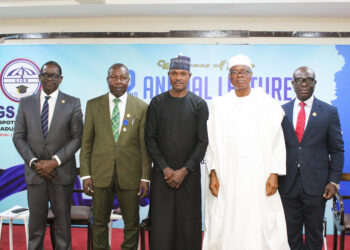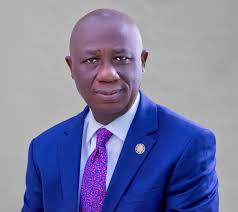Today marks a major leap in the implementation and enforcement of compulsory third-party motor insurance as prescribed by the Nigerian Insurance Industry Reform Act 2025 with the inauguration of joint committee of the National Insurance Commission (NAICOM) and the Federal Road Safety Corps (FRSC) at NAICOM’s Headquarters in Abuja.
Speaking during the inauguration, the Commissioner for Insurance, Mr. Olusegun Ayo Omosehin, commended the FRSC for its leadership and partnership in driving this action which will strengthen road safety, promote insurance compliance, and ensure prompt compensation for accident victims. Besides, he said the initiative aligns with government inclusive national development.
Integrated into this action plan is effective enforcement of compulsory Third-Party Motor Insurance; integration of insurance and vehicle registration databases; enhanced protection and compensation for road accident victims; and increased public education on insurance obligations and consumer rights.
In his remarks, the Corps Marshal of the FRSC, Shehu Mohammed, noted that the partnership would significantly improve enforcement of compulsory motor insurance nationwide and enhance the welfare of road users and reaffirmed FRSC’s readiness to support it through technology integration, data sharing, and field enforcement.
He said this would be a model of inter-agency synergy that would not only reduce road accidents but also enhance the government’s capacity to provide prompt financial and medical support to victims; noting that collaboration among public institutions is crucial for achieving national development goals.
Presenting the Joint Committee’s Terms of Reference (ToR), the Deputy Commissioner for Insurance, Mr. Ekerete Ola Gam-Ikon, highlighted primary responsibilities to include;
Enforce compulsory Third-Party Motor Insurance nationwide.
Reduce the number of uninsured vehicles in Nigeria.
Ensure prompt compensation and medical support for accident victims.
Promote awareness of the benefits and obligations of insurance.
Enable real-time verification of insurance status through digital integration.
Support microinsurance development for commercial drivers and passengers.
Strengthen emergency response coordination during the “golden hour.”
Closing the CFI said, “This partnership is not a one-off event. We are open to continuous feedback, regular evaluation, and the integration of new ideas as we move forward. Fewer road accidents, more insured motorists, and stronger public confidence in insurance will be among the key outcomes.”







































